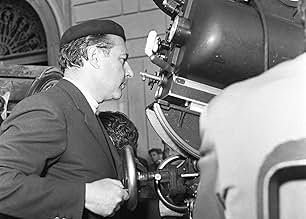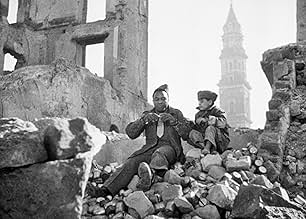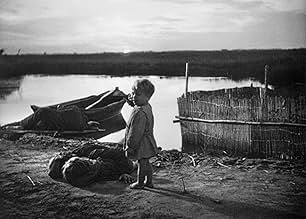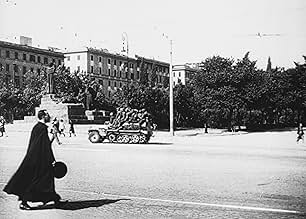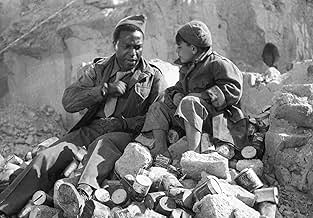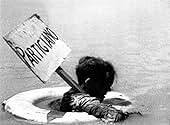American military personnel interact warily with a variety of Italian locals over a year and a half in the push north during the Italian Campaign of WWII as German forces make their retreat.American military personnel interact warily with a variety of Italian locals over a year and a half in the push north during the Italian Campaign of WWII as German forces make their retreat.American military personnel interact warily with a variety of Italian locals over a year and a half in the push north during the Italian Campaign of WWII as German forces make their retreat.
- Nominated for 1 Oscar
- 10 wins & 2 nominations total
- American Soldier (episode I: Sicilia)
- (as Leonard Penish)
- Joe - American MP (episode II: Napoli)
- (as Dots. M. Johnson)
- Pasquale (episode II: Napoli)
- (as Alfonsino)
- Harriet - Nurse (episode IV: Firenze)
- (as Harriet White)
Storyline
Did you know
- TriviaThe monks in the fifth episode were authentic Franciscan monks from the Maiori convent, near Salerno.
- GoofsAt approximately 1:36 (2:05 version), during Episode V, as the American Army Catholic Chaplain stands in the center of the screen discussing his two associate Army Chaplains (Protestant and Jewish) with the monks, you can see two individuals standing in the doorway behind them (they appear to be the other two Army Chaplains). In less than a minute, they suddenly disappear.
- Quotes
Captain Bill Martin - the catholic chaplain (episode V: Appennino Emiliano): I've never examined their consciences. I've never discussed this with them. I've never asked them anything, because I never felt I could judge them. I know them too well. They're good friends. Perhaps you, here mind this peace, this atmosphere of serene meditation, consider me guilty. I don't feel guilty. My conscience is clear.
- Alternate versionsOriginally premiered at the Venice Film Festival on September 8, 1946 in a longer cut (running 134 minutes). Later cut to 125 minutes. The 134 min. cut has been restored from material found at the Bundesarchiv-Filmarchiv in Berlin, Germany and has premiered at the 55th Venice Film Festival in 1998.
- ConnectionsEdited into Secret Dossier of the Mafia (1970)
Exploring the links between fiction and documentary, observation and education, and the individual and society, he was an important figure in the development of the cinema...
Rossellini said of the film: 'In Paisá there were two worlds which came into contact, each with a different psychology and mental structure. From this contact was born a great confusion; so much so that in the end there were neither victors nor vanquished, there remained only the everyday heroism of the man who clings to life. And who lives, despite everything, whether he is one of the victors or one of the vanquished.'
Rossellini followed 'Rome Open City' with the equally impressive Paisá, whose six, often barely dramatic stories of part-comic, part tragic encounters between Italians, Germans and liberating Americans were rooted in specific locations (the Po Valley, the Uffizi Gallery), but were universal in their portrait of an entire nation destroyed and divided by war...
Already Rossellini's taste for long, mobile takes in long shot (rather than montage and close-up) gave evidence of his desire to relate individuals to the world around them...
In using a number of non-professional cast, and combining them with his improvisatory techniques, Rossellini get an universally acclaimed human document of rare quality and compassion...
Georges Sadoul wrote that Rossellini had 'damned the horrors that war had brought to his country and his heart cry was emotionally and enthusiastically understood around the entire world.'
- Nazi_Fighter_David
- Sep 20, 2002
- Permalink
- How long is Paisan?Powered by Alexa
Details
- Release date
- Country of origin
- Languages
- Also known as
- Пайза
- Filming locations
- Uffizi Gallery, Florence, Tuscany, Italy(episode IV: Firenze)
- Production companies
- See more company credits at IMDbPro
- Runtime2 hours
- Color
- Sound mix
- Aspect ratio
- 1.37 : 1
Contribute to this page


